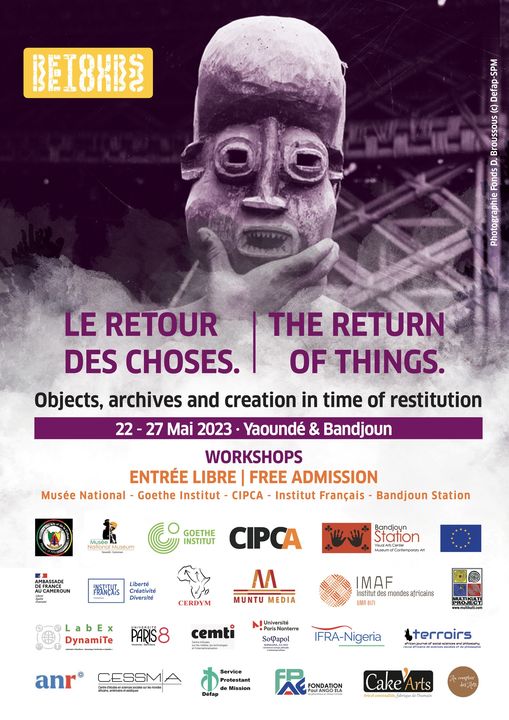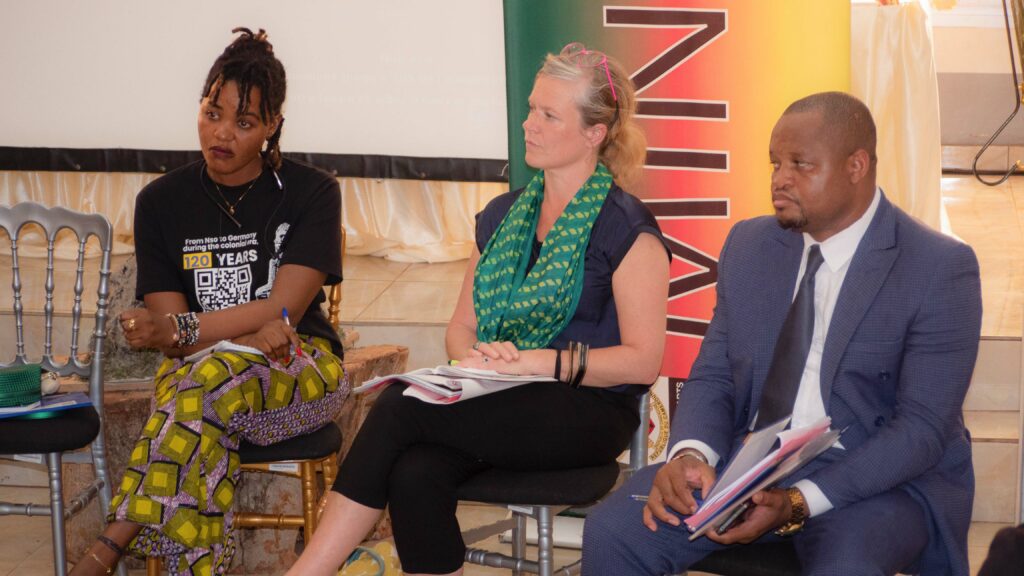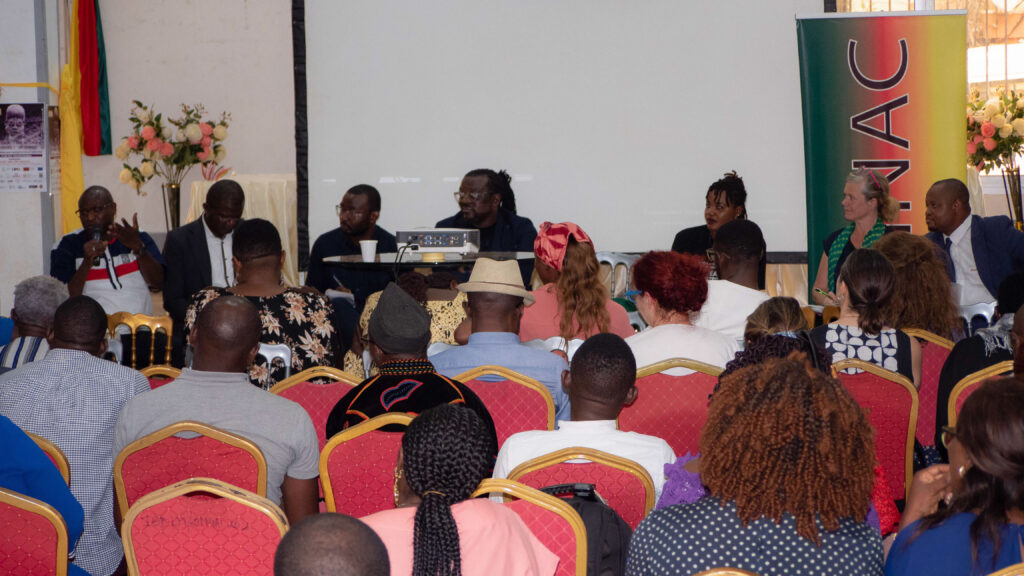On May 22, 2023, “The Return on Things” Workshop was launched at the national museum of Cameroon where different stakeholders gathered to discuss the issue of cultural heritage and restitution. The event, aimed to explore the meaning and significance of restitution, the challenges and opportunities it presents, and the role of different stakeholders in the process.
Restitution in its simplest is the return of cultural heritage that were looted from their countries of origin, often during colonial times or in situations of conflict, and are now held in museums or private collections abroad. Restitution is seen by many as a way of restoring dignity, identity, and justice to the communities that were deprived of their heritage, as well as fostering dialogue and cooperation between nations.

However, restitution is not a simple matter. It involves complex legal, ethical, political, and practical questions, such as: What constitutes a community? How can the provenance and ownership of an object be established? How can restitution be achieved fairly and transparently? What are the responsibilities and obligations of the current stakeholders of the heritage? What are the challenges and benefits of returning the heritage to its original context? How can the heritage be preserved and displayed in a way that respects their cultural value and significance? All these and more were raised in this workshop alongside two films depicting the depths and ills of colonialism.
These critical questions were addressed by the speakers and participants at the event, who included experts, activists, museum professionals, researchers, and journalists from various media organizations and institutions. The event also featured testimonies from some of the countries that have successfully restituted their artifacts.
What constitutes a community according to the discourse at the workshop is the beliefs, shared values, and the overall evolvement of the people. : To understand and reconnect with the community you need to understand self” said Sylvie Njobati CEO of Sysy House of Fame. With regards to the process to acquire restitution, patterns can be detected but no specific process works for everyone as each case is different. The best method so far is to identify and work directly with communities involved and the government comes in to support the negotiation of restitution sylvie posits.

From left: Njobati Sylvie – activist, Nanette Snoep -Director at – Museum Director at and Dr Heuman, National Museum Cameroon.
Nanette Snoep as a museum director is very straightforward about the need to decolonize and reinvent museum spaces. Without mincing words, she laments about the chaos going on in museum spaces “A place for conservation has now become a place for conversation”. Her profound experience and connection to the concept of decolonization and restitution shed more light on how the struggle in Europe is not just against the return to Africa, but also against proactive institutions and leaders who are pushing for action.
Susan, a Cameroon journalist worried about the recent indirect comments from Germany stating that the Cameroon government is not ready to work with communities couldn’t help but follow up with Dr. Heuman, the Director of the national museum and the lead of the restitution committee.
“The government has never worked alone” Dr Heuman.
In video 1 to the left, the director of the National Museums responds to controversies of government wanting to be the only negotiating structure while Sylvie Njobati responds to that in Video 2.
In response to this question, the director once more emphasized the fact that the state of Cameroon through the committee in charge of restitution is and will continue to work with communities.
Watch Twitter Video here
Though restitution was the main concern of the day, the audience and speakers were quite keen to connect other key topics around restitution such as Reparation, repatriation, and reconnection.
Film is a powerful tool to connect to history, reflect on the past, and have discourses on current issues – No doubt film projection was a key part of the opening day programme. Directed by Philip Nora in 2021, l’Afrique enquete de ses chefs d’ouvre took the center stage to contextualise the conversation. The documentary invoked in the audiences different sentiments with anger and frustration at the meanness of Europeans towards Africans. This evening session also saw the screening of “The Twist of Returns – Ngonnso” directed by Sylvie Njobati and produced by legendary filmmaker, Jean Marie Teno.
The 6 days event had just begun. From Yaounde to Bandjoun, powerful conversations on different dynamics of restitution would continue. The mixed approach of tours, workshops, exhibitions, and film screenings made this workshop suitable for everyone.
The “Return of Things” was a milestone workshop that highlighted the importance and urgency of cultural heritage restitution as a global issue that concerns not only Africa but also Europe and the rest of the world. It also demonstrated the potential and promise of restitution as a catalyst for dialogue, collaboration, and mutual understanding between cultures.

